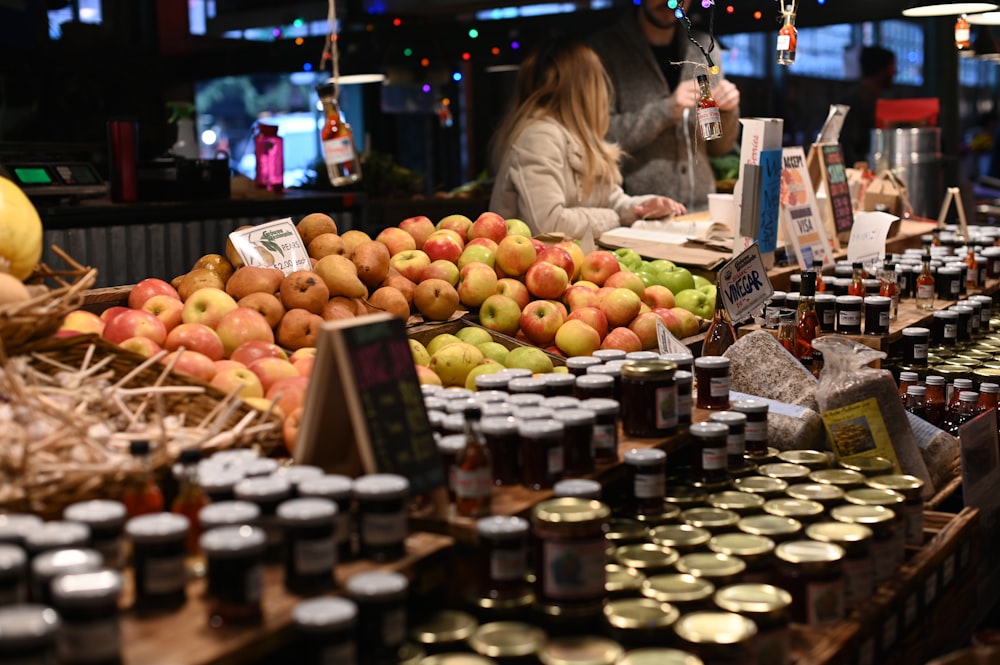Kroger Is Using AI To Catch Criminals And Reward Valued Customers
Image Source: Unsplash
Grocery stores around the country have been putting in more self-checkout lanes. They were supposed to save money and make checkout faster. After all, grocery stores used to pay multiple cashiers to ring up groceries while customers waited in line. But now a single employee can watch up to six self-checkout booths at the same time while customers scan and bag their own groceries.
It sounded like a good idea. But then, grocery stores realized they were losing more money. All because some dishonest shoppers had figured out how to scam the self-checkout machines. They’d enter the code for something cheap – like a banana – and put something expensive – like a steak – onto the scale when the self-checkout asked them to weigh their “bananas.” But that’s about to change.
To protect their profits, grocery chains are using artificial intelligence (AI) to crack down.
Today, I’ll explain how one grocery store chain is using AI to transform its business. And I’ll show you why now is a good time to invest in this reliable dividend grower.
Catching Criminals and Rewarding Valued Customers
Along the way, a grocer’s inventory “shrinks” – due to damaged or spoiled food, sticky-fingered employees, or dishonest customers shoplifting or using things like “the banana trick.” But a business can’t innovate and grow when the “shrink” gets too large.
That’s why in 2020, grocery store giant Kroger partnered with electronics manufacturer Lenovo and the AI platform Everseen. It’s now using AI to improve its self-checkout system.
The software watches real-time video to check for problems. When it finds something wrong, it gives shoppers a chance to fix the error or call for help. The results were impressive. In just two years, Kroger’s AI solution helped customers fix 75% of self-checkout errors without the help of an employee.
That gave customers a faster checkout experience and reduced the shrink. It also helped Kroger stock its shelves better by keeping track of exactly what was going out the door.
Kroger is taking things further by running its online delivery program on AI. It partnered with British grocery retailer Ocado to create high-tech warehouses. In these warehouses, AI directs thousands of robots to pick out customer orders for delivery. It’s smart enough to use as few bags as possible and even keep fragile items on top.
And those aren’t the only ways Kroger is embracing AI. It also recently partnered with chipmaker Nvidia. It’s using AI to keep track of how fresh its food is and to pick the best delivery routes.
That’s important because more and more of Kroger’s customers are buying groceries online. Earlier this year, Kroger CEO Rodney McMullen revealed the company’s digitally engaged customers increased by 13% – and these customers spend nearly three times more. And Kroger is turning its treasure trove of data on more than 62 million households into a new source of profits through its 84.51° customer research team.
Their research helps food companies target their promotions to the people most likely to buy their products by using AI to deliver personalized coupons, recommendations, and rewards. And it’s already working. Kroger customers are redeeming more than 180 million digital coupons each quarter -- increasing Kroger’s bottom line.
How You Can Profit
So how can you profit from Kroger’s impressive use of AI? The most direct method is by investing in Kroger itself. Kroger is a reliable dividend grower that has increased its payout 18 years in a row. It’s also a great recession-resistant business because people tend to buy more groceries and cook at home instead of eating out at restaurants when times are tough.
Kroger shares yield 2.8% and trade at just 9.4x earnings. And that’s a 29% discount from its historical average of 13.3x earnings. So now is a great time to invest in the company.
More By This Author:
Increased Demand For Cold Storage Warehouses Is A Profit Opportunity
AI Can’t Progress Without This Company’s Technology
WeWork’s Bankruptcy Is About To Shock Our Financial System
Brad Thomas is the Editor of the Forbes Real Estate Investor.
Disclaimer: This article is intended to provide information to interested parties. ...
more



